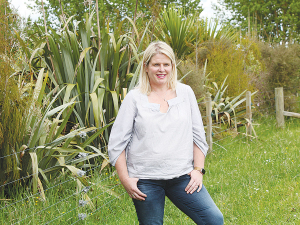Another Windfall for Fonterra Farmers, Unit Holders
Fonterra farmer shareholders and unit holders are in line for another payment in April.
 Fonterra director of sustainability Charlotte Rutherford says sustainability was top of mind for every customer she spoke to at a recent conference in Florida.
Fonterra director of sustainability Charlotte Rutherford says sustainability was top of mind for every customer she spoke to at a recent conference in Florida.
Dairy consumers are demanding change, now, according to Charlotte Rutherford, director of sustainability at Fonterra.
She says sustainability was top of mind for every customer she spoke to – Nestlé, MARS, Abbott, Premier – at the recent International Dairy Forum Association (IDFA) in Florida.
“They’re all laser focused on sustainability in their products and supply chain,” says Rutherford.
“Consumers are demanding change, quickly, with the main issue being carbon reductions.
“We should be prepared for these demands to continue to grow, and in turn we need to adapt to maintain and protect our value.
“For these customers sustainability is no longer a nice to have or value add, it’s a must have if we want to continue working together in the future.”
The annual forum attracts over 1,000 dairy leaders to connect with other industry leaders, advance their knowledge and discover new perspectives on issues that are important to our industry.
Many of Fonterra’s strategic customers shared their insights and perspectives on a wide variety of relevant topics to advance dairy's growth in the US in the years ahead.
Rutherford spoke on a panel discussing how global environmental, social and governance (ESG) trends impact leadership decisions, and showcased Fonterra’s work to become more sustainable.
Rutherford notes that the US dairy industry is big, bold, and growing. She says ever the optimists, representatives from the US were extremely confident about the adaptability and future of their industry.
“They claim their industry is the most sustainable and believe offsetting is the solution to on-farm emissions, strongly promoting it.
“They believe this, along with the supply, and the ability to grow, means they will meet the sustainability expectations of customers and consumers.
“That doesn’t mean they don’t have challenges – carbon measurement and reporting, access to water in some states, and of course individual state laws to contend with, to name a few.
“With our low carbon dairying, we have an advantage. The US, amongst others, is hot on our heels and this is ours to lose.”
Rutherford describes regenerative agriculture as “two words, one big promise”.
She points out that while the concept of regenerative agriculture is popular with consumers and customers, it remains relatively undefined.
“The good news… we have a very real opportunity to lead and deliver in this space.
 |
|---|
|
Consumers are demanding change, quickly, with the main issue being carbon reductions, says Fonterra. |
“Our pastoral based system is compatible with most regenerative principles and ideas, and, because of our existing reputation, it’s likely to be viewed more favourably by consumers.”
Rutherford says measuring our progress as an industry has never been more important.
“We have world-leading experts in this space to ensure Fonterra’s method for pastoral farming is fairly and transparently represented in any global system.
“However, the difference in geographic farming systems means some methods could disguise other companies’ true footprints.
“These reporting protocols will shortly be reviewed, and we will be working hard to ensure transparency to retain our leading position.”
Rutherford says the global sustainability space is moving incredibly quickly, and the industry must continue to accelerate our work.
For Fonterra, this is an opportunity, she says.
“We are in a prime position to claim the leading position for most sustainability issues in the industry. Key to this will be partnering with our customers to set achievable roadmaps that represent our farmers current practices, achieving a pace of change appropriate to our unique farming system.”
Agrisea NZ has appointed Craig Hudson as it's new chief growth officer.
State farmer Landcorp, trading as Pamu, is a forecasting a full-year net profit of around $100 million.
Tony Aitken, chief executive of Ruralco, has been awarded the Excellence in Business Leadership Award at the ANZ Business of the Year Awards.
Global trade has been thrown into another bout of uncertainty following the overnight ruling by US Supreme Court, striking down President Donald Trump's decision to impose additional tariffs on trading partners.
Controls on the movement of fruit and vegetables in the Auckland suburb of Mt Roskill have been lifted.
Fonterra farmer shareholders and unit holders are in line for another payment in April.
OPINION: Staying with politics, with less than nine months to go before the general elections, there’s confusion in the Labour…
OPINION: Winston Peters' tirade against the free trade deal stitched with India may not be all political posturing by the…